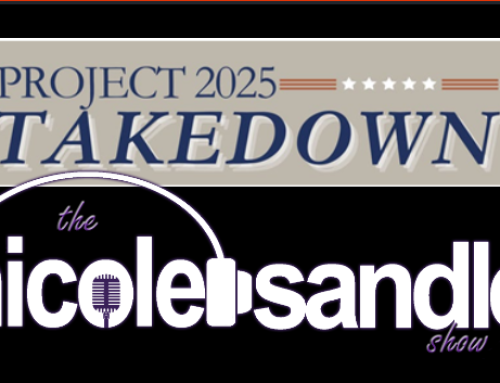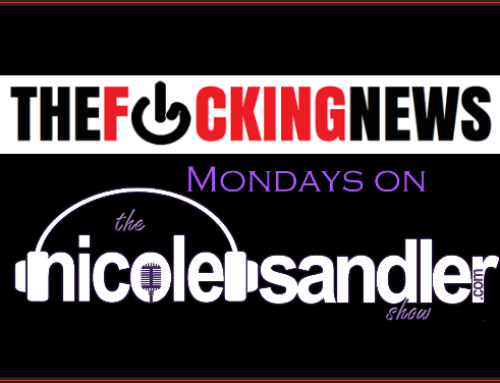Note from Nicole:
Earlier this month, Denis Campbell joined me on my show to talk about his experience with the UK’s National Health Service during his own real medical emergency. His story is apparently typical of any similar medical emergency in the UK.
Since much of the primary debate is about the need for a single-payer, universal health care system, I asked Denis if I could re-post his article here.
As the title implies, it’s far from perfect, but I’d still take that system over ours any day.
Nicole Sandler
My left retina was detaching.
On a Sunday morning.
I know, because the right one detached on my 49th birthday and I was rushed into emergency surgery.
The words of my cataract surgeon 20 years earlier claxoned, ‘do not walk, run to A&E’ or you could lose your sight in that eye. This joined forces with the other known terror, ‘never become ill on the weekend.’ It all about did me in, even before treatment.
The retina is a very thin membrane at the back of one’s eyeball. It is the screen your eye uses to project the outside world onto your inner eye and then into your brain. Your optic nerve is attached to it. It is very fragile and tears most commonly amongst the very near sighted or those with past cataract surgery. I was a winner on both counts.
In situations where one has a heart attack, they often say, ‘time is muscle.’ This means the longer it takes to revive, the more damage and scar tissue there is to that organ. If a retina fully detaches, surgery cannot help, you are blind in that eye for the rest of your life.
The Mad Dash to Hospital
After a 45-minute drive, I arrived at 10:30 am in the A&E ward of University Hospital in the Heath section of Cardiff. The waiting room was full and my first words were… ‘my retina is detaching. I know this because the right one did the same thing nine years ago. I need to see someone ASAP because I could… go… blind.”
Now the first problem with the system is there is no one with triage skill behind the reception desk. They are waiting room list attendants and, in fairness, everyone who presents thinks their situation is an emergency, but everyone gets placed in the same queue. Perhaps if I said chest pains or stroke I would have moved faster? But I waited.
I waited and watched as every scraped and bloody knee from the footie or rugby pitch limped in ahead of me. While the signs may say ‘priority is given to those in the most need?’ Not on this day. Everyone went to the back of the queue and was called in the order in which they arrived.
The triage nurse, after 2 hours of waiting, immediately jumped into action, saw the seriousness of the situation and sent me racing up the internal back elevators to Ophthalmology with the words, ‘this is serious. Be persistent.’
I waited another two hours before the incredibly over-stressed junior doctor on call could see me and confirm, “yes, sir, your retina is detaching.’ She was the hardest working specialist in show business that Sunday dealing with major crises.
But it was now 3:30 pm and my choices were: a) go to Bristol, England for emergency surgery (but the caveat was if I arrived after 5:00 pm there would be no surgery until the next morning) or b) go home and immobilize myself by laying on my left side (and, I guess, praying it does not get worse?). And I would be 1st on the schedule Monday.
I chose option b. hoping it was the correct one.
Eye Surgery 101 – Time is Retina
My specialist was very thorough the next morning. He originally was going to use a local anaesthetic but read the notes from nine years earlier, saw the difficulty that doctor had having to apply a synthetic band around my eye and voted to knock me out.
Despite more than 24 hours passing from start of the tear and a loss of 30% of the vision in my eye (a grey shade was moving across my field of vision), surgery in theatre does not start until 1:30 pm. Basically the doctors first do hospital rounds, then clinic, then operate. Again, flexibility would save people in many areas.
By the time I had been tested, prodded and poked by all admitting departments (and signed my life away on forms), I was ready to rock and roll. The surgeon and I walked down a few corridors, the team attached ECG leads to me, the anaesthetist said it was time and I would feel something cold in my hand and arm. And I remember saying out loud, “am I supposed to count backwards from 100? Wow, this is great stuff…”
Gone.
When I awoke, there was a patch over my left eye. The nurses said all went well. And asked if I wanted a cup of tea. I said to the nurse I had a memory of trying to escape… then nothing. She replied, “they did have some difficulty with you waking up.” (As I learned the next day, my ‘fight or flight reflex’ had me trying to get up and leave the recovery room. All 20 stone of me was appropriately manhandled and secured. I woke up in my bed and had no recollection of how I got there.) I apologized profusely to all on the recovery team.
I slept fitfully (as one does overnight in hospital) and was more than ready to leave the next day. The rule is you have to eat and pee before you can be discharged. Eating was fine. Peeing was another issue. But I was, a tiny bit, and attributed the slow restart to the anaesthetic. It was improving so I did not worry.
I should have worried.
Male ‘Labour’ aka Urine Retention
A common side effect of surgery in men over 50 is a condition called ‘urine retention.’ If one is taking a prescribed blood thinner such as aspirin or an equivalent, the blood can flow into your bladder and clot essentially blocking you from relieving yourself.
I’d been discharged from University Hospital around noon on Tuesday and by 6 pm for love or money could not pee. I was in agony. My bladder was in constant spasm and every muscle in my lower body joined on in. I called the day surgery unit at University Hospital and they said, ‘you likely have urine retention, come now to A&E.’ They also said I could use my local hospital in Bridgend which was 14 minutes away vs. Cardiff’s 45.
I arrived in agony at Princess of Wales and was seen promptly. The nurse asked what was going on and this began a 3-hour trauma odyssey. They tried multiple catheters and a variety of other torture tools (my term) to relieve the pressure on my bladder. None worked. My bed/cart moved four times (I say it was because I was scaring other patients) to bigger monitoring/trauma bays where more people could work simultaneously.
They put me on ‘gas and air,’ the breathing system used by women in labour. It gives one a very nice buzz until the next contraction/spasm. A surgeon was called in from his home at 11 pm and the last straw was him essentially inserting a drain directly into my bladder. Now by inserting, I mean he knifed me by plunging a long needle in with minimum local anaesthesia.
When he arrived he took control of a chaotic situation. He told the nurses and doctors attending what he needed. Said, “this will be messy.’ And he whispered to me, “Mr. Campbell, you are going to feel a lot of discomfort, sorry.” Even then, the word pain was never to cross his lips. Mine on the other hand?
2.5 litres of blood and urine later, I was resting comfortably, cleaned and ready to transported to a ward room for the night.
The NHS ‘Bed-Blocking’ Crisis
On my ward of six beds were four gentlemen in need of going home or step-down care and one was trying to be being sent home after a week because two hospitals were fighting with each other over responsibility for surgery and his infection was not improving.
I settled in after a sleepless night in Cardiff to try and sleep through the buzzsaw of snoring and other male exhalation and relieving sounds in Bridgend. By Wednesday morning, I’d been through 2-surgeries in less than 48 hours and was a walking zombie.
The doctor saw me during morning rounds and was pleased with my wound and I was placed on the board to go home later that day. The problem, was there was still blood in my urine and after rushing back once, I insisted on a second night of observation to be sure. The ward sister agreed and I spent most of Wednesday into Thursday sleeping or observing multiple levels of NHS staff excellence.
Half my ward needed to go home but had nowhere to go because no one could take care of them and they could not remember their own name and address. The others were just mean and nasty to everyone around them. How the NHS nursing staff puts up with regular abuse was beyond me? Imagine a 75-year old angry man responding to every query by fighting, being uncooperative and saying: “eff this, eff that, go eff yourself?” And it was everywhere and from the most surprising of sources.
In both A&E’s angry people were overheard saying things like, “call me a taxi, you bitch!” to “get me an effing bed on a ward right now, dammit you cow!” to “oh my effing leg, don’t you effing touch me!” it was a shocking display of ill temper from patients on so many levels. And there are times when the abuse becomes physical.
So I became the NHS’ biggest advocate that week and I was not even yet out of hospital.
The Journey Home to Wellness
As I type this, the last antibiotic pill is about to be consumed but the three weeks on from the surgeries had ups and downs.
I reflected on the past week and realized if this had happened in my birth country, I would be staring down at a $100K bill for services, supplies, drugs and everything else. Yet no one asked for an insurance card, made me complete forms or visit the cashier and credit office on my way out. That is the beauty of the NHS. All my records can be accessed anywhere, any time. My new GP is aces and the system does a remarkable job of treating acute illness.
As I would learn, the pressure on the clinic system to provide more routine, but greatly needed, services, was immense. My eye appointment was two weeks after surgery. It lasted for ten minutes and the gas bubble had not cleared. So I needed to return in two more weeks. Except there was no date available and the clinic would need to move something to accommodate me. A week went by with no appointment letter. So I have to now follow up.
The ‘appointments’ system is antiquated, inefficient and broken. Hundreds (if not thousands) of them are missed and it creates bottlenecks throughout the system. Too, arranging surgical schedules in such a way that a very long day begins with rounds, followed by 3+ hours of clinic then straight into surgery means those with a late in the week, late afternoon surgery slot end up at the mercy of the fates as fatigue, concentration lapses and other issues set in. Doctors are human beings, not Gods.
So many parts of the NHS work extremely well on the patient care side. They are just grossly understaffed. When I took of photo of the shower on the 5th floor with a hand written note apologizing for the condition of the shower and explaining that they were “waiting for the NHS Trust to vote the funds to clean and repair it,” that spoke volumes of a system heavily focused on rules, forms and administration and a culture of distrust unable or unwilling to solve problems at the point of origin.
Care Beyond Hospital Doors
First came visits from the District Nurse who walked through the door with a battery of supplies to get through the next few weeks and presented options on how to proceed. I was so impressed by this group of home carers who probably visit dozens of people each day yet were singularly focused on my comfort and recovery. I was stunned when a week later the nurse called to follow-up and check-in on me. She offered great advice and ordered new supplies for me.
When infection set in, I was unaware, just very tired. A routine visit to the practice nurse on another matter so concerned her that she called one of the GP doctors in. After a brief examination and an analysis of a sample, quick thinking and action started me on antibiotics and the healing of a nasty bacterial infection.
So the objective is simple, but the task is great.
1. We need to make it easier for front line carers in greater numbers to serve those most in need.
2. We need to adjust and revise our clinics, rounds and surgery schedules to make maximum use of technology, ensure maximum efficiency and eliminate lost appointments.
3. We need to cut the amount of Administration and paper ticking exercises and ensure that those providing the care can do their job efficiently and effectively.
4. We need to cut waste and inefficiency out of the NHS systems so we get the proper amount of support equipment. Three weeks on, I am returning several unused pieces of kit that could help if every patient did the same.
5. EVERYONE needs to respect ALL NHS workers at every level and in every moment.
I do not know how these people do it. They give up much of their life to save ours. They make the NHS the world’s best health system. We need to support them and make their job and life easier so they can save many more lives vs. seeking to turn our NHS into yet another privatized, for-profit venture.
I am grateful to:
• The A&E Nurses, trauma team and support staff in Bridgend’s Princess of Wales Hospital.
• The outstanding crew of nurses and staff on Ward 7 who kept that entire chaotic floor running like a Swiss clock.
• The Day Surgery team at University Hospital who move patients around with great skill and care despite being like airplanes stacked up over Heathrow.
• The Emergency Eye Clinic Doctors at University Hospital who moved me up the queue in a time of emergency.
• The A&E nurse who insisted I ‘be persistent’ in pursuit of care.
• The urology team in Bridgend with whom I am just beginning to become acquainted.
• The District Nurses who came out during the 70 mph winds of storm Imogen to ensure I was OK.
• My new GP Practice and the outstanding people at Cowbridge and The Vale who take the time needed and do what is necessary and more every time.
These are the everyday heroes who should be on the front pages of any NHS fight in the future.






